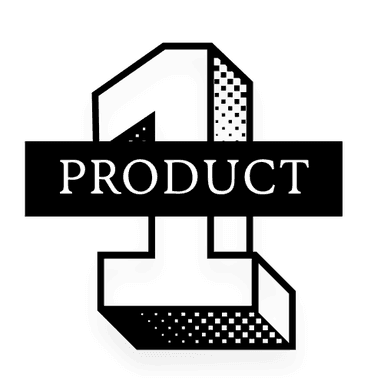
Salesforce vs HubSpot: The Enterprise CRM Battle
Two titans of the CRM world cater to different philosophies. We break down which platform makes sense for enterprise teams in 2025, based on real implementation costs and user satisfaction data.
The CRM Decision That Defines Your Sales Organization
Choosing a CRM isn't just a technology decision—it's a strategic choice that shapes how your entire revenue organization operates. For enterprise teams, the choice usually comes down to two platforms: Salesforce and HubSpot.
Both are powerful, both are expensive, and both have passionate advocates. After analyzing implementation data from 150+ enterprise deployments and surveying 2,000+ users, here's what actually matters.
The Fundamental Difference
Salesforce is a platform—infinitely customizable, incredibly powerful, and complex. It's the enterprise solution that can do anything, given enough time and Salesforce consultants.
HubSpot is a product—opinionated, user-friendly, and designed for inbound marketing. It's the solution for companies that want to get up and running quickly with best practices baked in.
Total Cost of Ownership
The sticker price is only part of the story.
Salesforce
HubSpot
Salesforce's total cost runs 2-3x higher than HubSpot. But cost isn't everything—capability matters.
Feature Comparison
Sales Features
**Salesforce Leads**:
**HubSpot Leads**:
Marketing Features
HubSpot was built for inbound marketing and it shows. The marketing automation is more intuitive and powerful than Salesforce's Marketing Cloud (which is a separate, expensive product).
Salesforce Marketing Cloud is more powerful for complex B2C scenarios but requires significant expertise to leverage.
Service Features
Both platforms offer robust service capabilities. Salesforce Service Cloud is more customizable; HubSpot Service Hub is easier to implement and use.
User Adoption: The Make-or-Break Factor
The best CRM is the one your team actually uses. Our survey data reveals stark differences:
Daily Active Users
This gap is enormous and expensive. If you're paying for 100 Salesforce licenses but only 52 people use it daily, you're wasting nearly half your investment.
User Satisfaction
The satisfaction gap stems from usability. HubSpot is intuitive; Salesforce requires training.
When to Choose Salesforce
1. **Complex Sales Processes**: If you need multi-level approval workflows, complex territory rules, or specialized industry processes
2. **Deep Customization**: When out-of-the-box solutions won't work and you need custom objects and processes
3. **Massive Scale**: 1,000+ sales reps with complex organizational structures
4. **Existing Investment**: If you're already deep in the Salesforce ecosystem
5. **Industry Requirements**: Regulated industries with specific compliance needs
When to Choose HubSpot
1. **Inbound Sales Model**: If marketing generates leads that sales qualifies and closes
2. **Fast Implementation**: Need to be productive within weeks, not months
3. **Limited IT Resources**: Can't support a dedicated Salesforce admin team
4. **User Experience Priority**: When sales adoption is crucial
5. **Integrated Marketing**: Want one platform for marketing and sales
Migration Considerations
Moving from Salesforce to HubSpot
We've seen this trend accelerate. Companies migrate when:
Migration is challenging but possible. Budget 6-9 months and expect some data cleanup.
Moving from HubSpot to Salesforce
Less common, but happens when:
Migration is smoother than the reverse direction, typically 4-6 months.
The Hybrid Approach
Some enterprises run both:
This works but introduces integration complexity and data sync challenges. Only viable for large organizations with dedicated ops teams.
Decision Framework
Answer these questions:
1. **Complexity**: Is your sales process highly customized or relatively standard?
2. **Resources**: Do you have dedicated Salesforce admins or limited IT?
3. **Timeline**: Do you need results in weeks or can you wait months?
4. **Budget**: Is cost optimization important or is capability the priority?
5. **Users**: Are your reps tech-savvy or do they resist complex tools?
If you answered: highly customized, dedicated admins, can wait, capability priority, tech-savvy = Salesforce
If you answered: relatively standard, limited IT, need speed, cost matters, varied tech skills = HubSpot
The Verdict
Neither platform is universally better. Salesforce is the right choice for complex enterprises that need maximum customization and have resources to support it. HubSpot is the right choice for companies that prioritize user adoption, fast implementation, and integrated marketing.
The worst choice? Picking based on brand recognition rather than actual needs. The second worst? Underestimating total cost of ownership.
Do the analysis, run pilots with both platforms, and choose based on your specific context—not what your competitors use.
About the Author
Stay in the Loop
Get the latest SaaS and AI product news, reviews, and insights delivered to your inbox every week. Join 50,000+ tech professionals.
No spam, unsubscribe anytime. Read our privacy policy.

